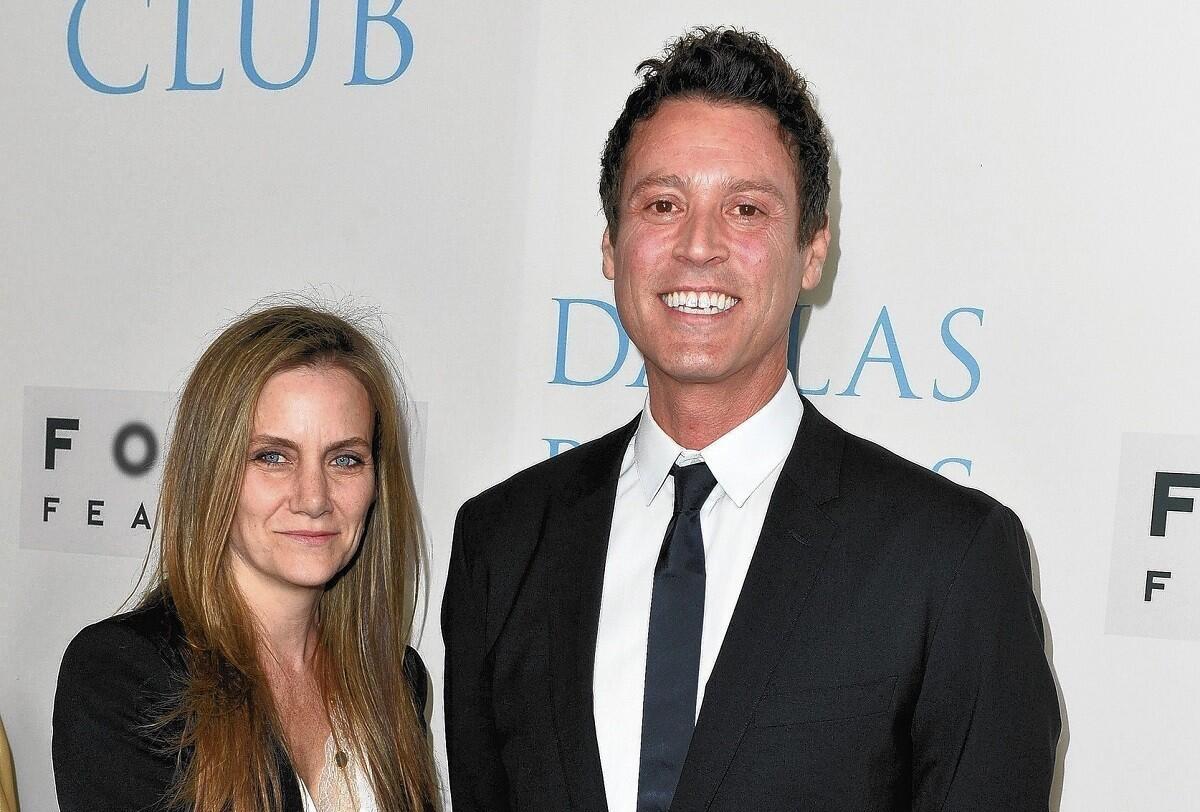Spirit of champions drove the ‘Dallas Buyers Club’ script

- Share via
Craig Borten
My emotional attachment to “Dallas Buyers Club” starts with the loss of my father, Buddy. In 1981, he was diagnosed with lymphoma and given six months to live. I observed firsthand the coldness and disconnect of the doctors as well as the limited protocols available. I remember my father’s frustration with the medical system. Instead of accepting his sentence, he asked questions, became proactive and looked into alternative treatments in Mexico. Ultimately, my father lived for five more years. I believe his never-say-die attitude helped him to push through the illness and live longer.
When I met with Ron Woodroof in 1992, Ron exhibited that same never-say-die attitude that I had seen in my father, and I was struck by the parallels in AIDS and cancer. I observed Ron’s frustrations with the medical establishment, lack of available treatments and changing opinions of the so-called, self-anointed experts. Ron became an unlikely champion for a vulnerable population of people who were often desperate and at times incapacitated. He helped those who were unable to help themselves.
REVIEW: ‘Dallas Buyers Club’ led well by McConaughey, Leto
There are times in life when everyone needs champions, and I have been fortunate to have my own during this 20-year journey. In 2000, I met Melisa Wallack and asked her to work on the script with me. I didn’t realize at the time she would become one of my greatest champions. Melisa not only influenced the screenplay in numerous, invaluable ways, but she picked me up in some of my darkest hours of life and helped push the movie forward and ultimately my own character. She would never give up on me or the film.
Her passion inspired my passion. I would not be here without Melisa’s support and writing, and it is with that I was ultimately able to show up and continually reinvest in this powerful story. When wrestling with substance abuse, I found at times that conjuring Ron’s spirit of a never-say-die attitude helped push me to fight harder at my own life.
Melisa Wallack
I grew up in an idyllic town outside Minneapolis with my parents and five siblings. We had dinner together almost every night at a huge circular table with a Lazy Susan in the middle. As the center of the table spun around and small hands struggled to grab at the passing food, my father would listen to us recount what we had learned at school that day. One of my most vivid memories of this nightly ritual was my father’s insistence that we tell him how we knew something was true. Who said it? Where did we read it? How did we know it was, in fact, true? It wasn’t until many years later that I understood what my father was doing.
I joined the “Dallas Buyers Club” journey in 2000. Craig and I had recently been introduced, and when he gave me the tapes on Ron Woodroof, I knew that his instincts were right and that he had found a great character and an amazing story. Ron’s struggle to survive, and unwillingness to listen to those in authority who told him he would not, should serve as a wake-up call to everyone. Ron’s sickness awakened him to the politics of AIDS and in more general terms the politics of sickness. What he discovered was an unyielding bureaucratic system that protects corporate profits over the vulnerable sick and dying. Ron’s unwillingness to listen and follow protocol literally kept him alive.
When I think of Ron, I don’t think of a victim of the AIDS epidemic, I think of a hero of our times and someone my father would respect. I think of a man who challenged the system, who took on one of the most powerful establishments in our country and who, through sheer will and perseverance, helped himself and others.
For me, Ron’s story transcends AIDS. It applies to every one of us in every aspect of our lives. It speaks to the danger of becoming passive participants who follow written protocols and so-called experts’ opinions instead of our own instincts. It reminds me of my nightly conversations with my father and his insistence that we distinguish opinion from fact. It reminds me that it is important to be an active member of society and, in the words of Ron Woodroof, that “everyone should ask questions.”
MORE OSCAR COVERAGE
WINNING BALLOT: A list of the 2013 winners
TIMELINE: Academy Awards through the years
More to Read
From the Oscars to the Emmys.
Get the Envelope newsletter for exclusive awards season coverage, behind-the-scenes stories from the Envelope podcast and columnist Glenn Whipp’s must-read analysis.
You may occasionally receive promotional content from the Los Angeles Times.










